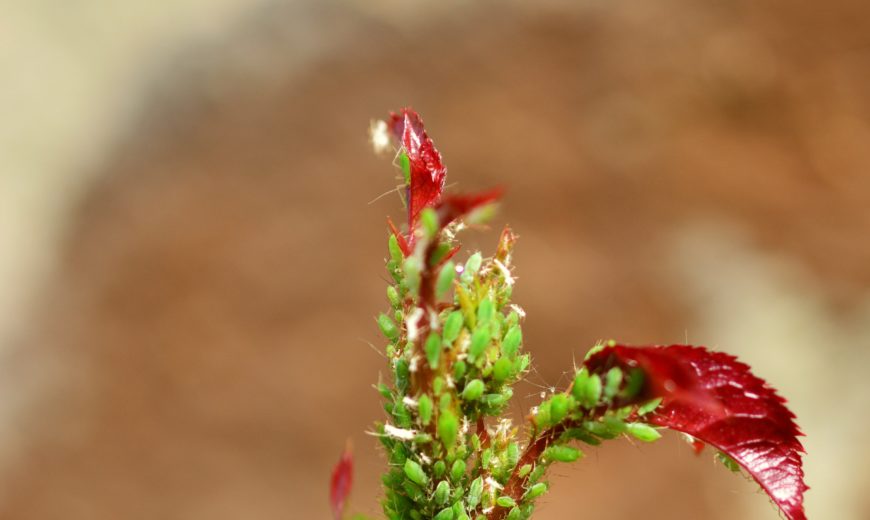
What is Integrated Pest Management (IPM)? What are some of the most common pests found in your vegetable garden? Are homemade solutions effective? What are some organic, commercial sprays and treatments that are effective and have proven so in organic farms in the Middle East?
What is integrated pest management (IPM) in the organic garden?
Integrated pest management limits harmful populations of pests in your garden by undertaking a series of measures. This multi-pronged approach to pest management includes maintaining good soil health, intercropping, companion planting, crop rotation, encouraging the introduction of beneficial insects and predators, the use of organic sprays to deter or eradicate pests, the use of pheromones and blue and yellow sticky tapes, and the use of insect netting… Phew! Long list!
Does that mean you need to undertake all these measures to control pests in your garden organically?!
Thankfully, the simple answer is no!
But to be effective, your pest management strategy ought to use a mix of these measures, so long as they make sense for you; meaning that they are both practical and cost-effective.
In this article, we will share with you the most common pests that you will find in your vegetable garden, and the best organic pest controls to use.
What are some of the most common pests found in your vegetable garden?
Get to know your garden neighbours! The top 7 most-pesky pests are that you will likely find in your garden are:
1.Aphids
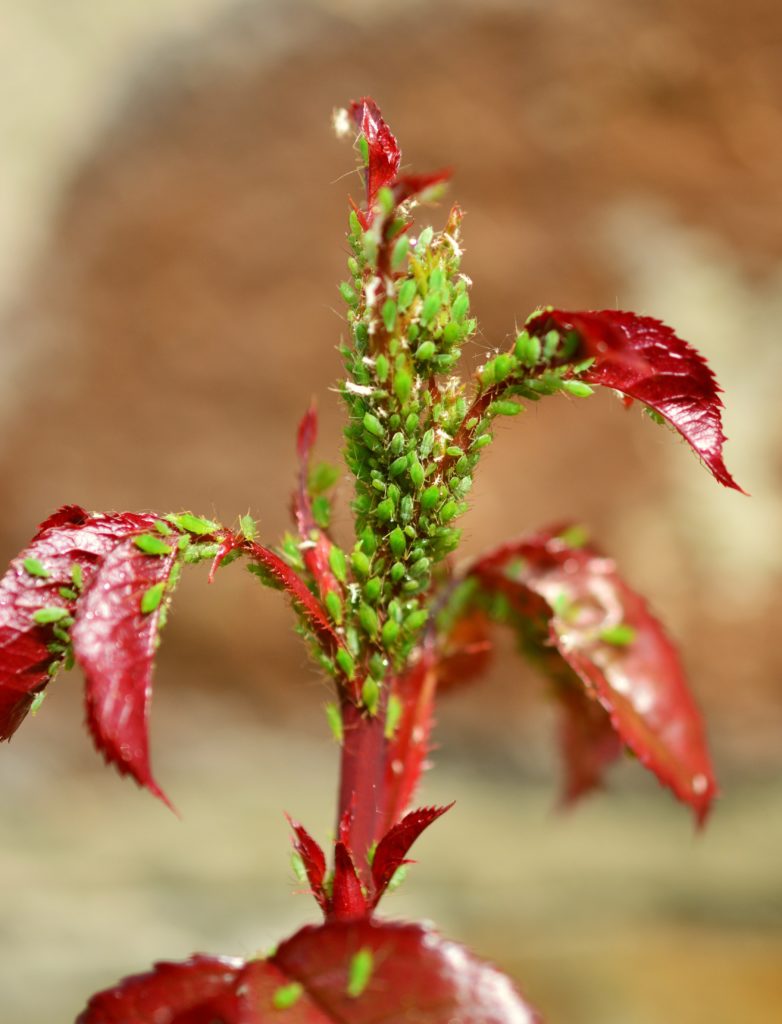
Tiny and pear-shaped, aphids will eat pretty much everything. They suck on plant sap/juices, and as they move to neighbouring plants, they transmit viral diseases.
2. Caterpillars (cabbageworm, corn worm)
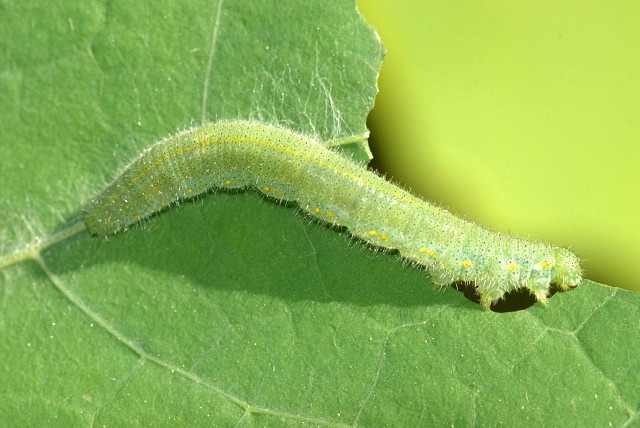
Caterpillars are the larvae of butterflies and moths. They chew holes in leaves, and when left alone, they can defoliate an entire plant! They sometimes also tunnel into fruits.
3. Whiteflies
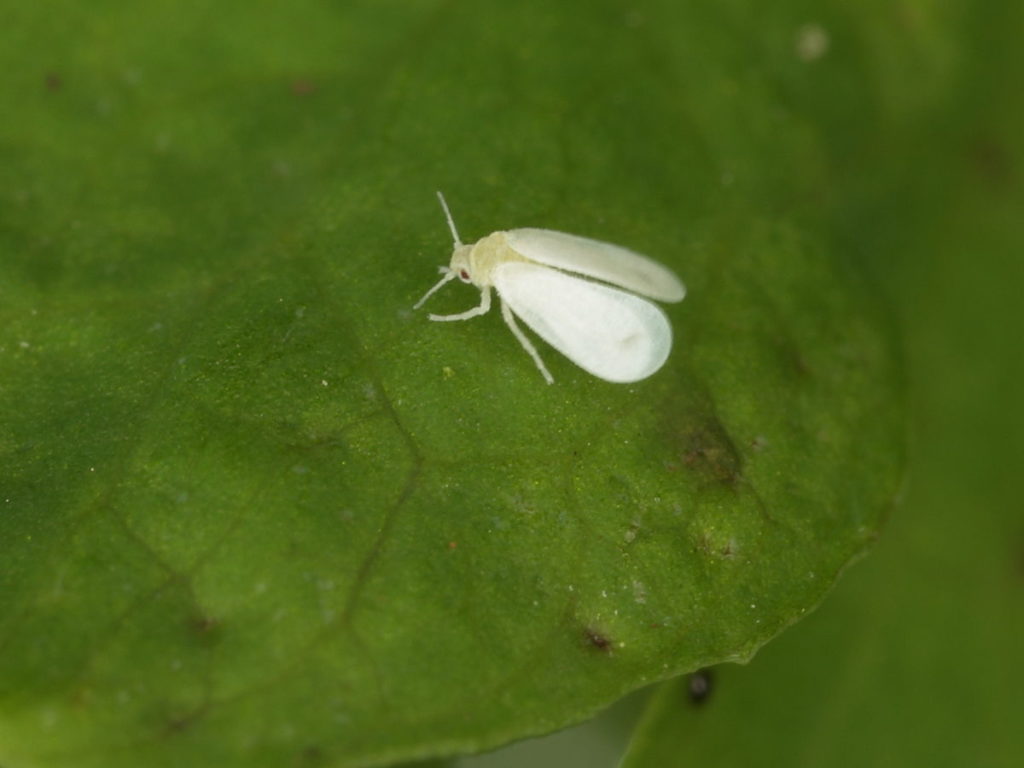
Small, sap-sucking insects found on the underside of leaves. They affect Solanaceae like tomatoes, peppers and potatoes, and also citrus and cucumber.
4. Thrips
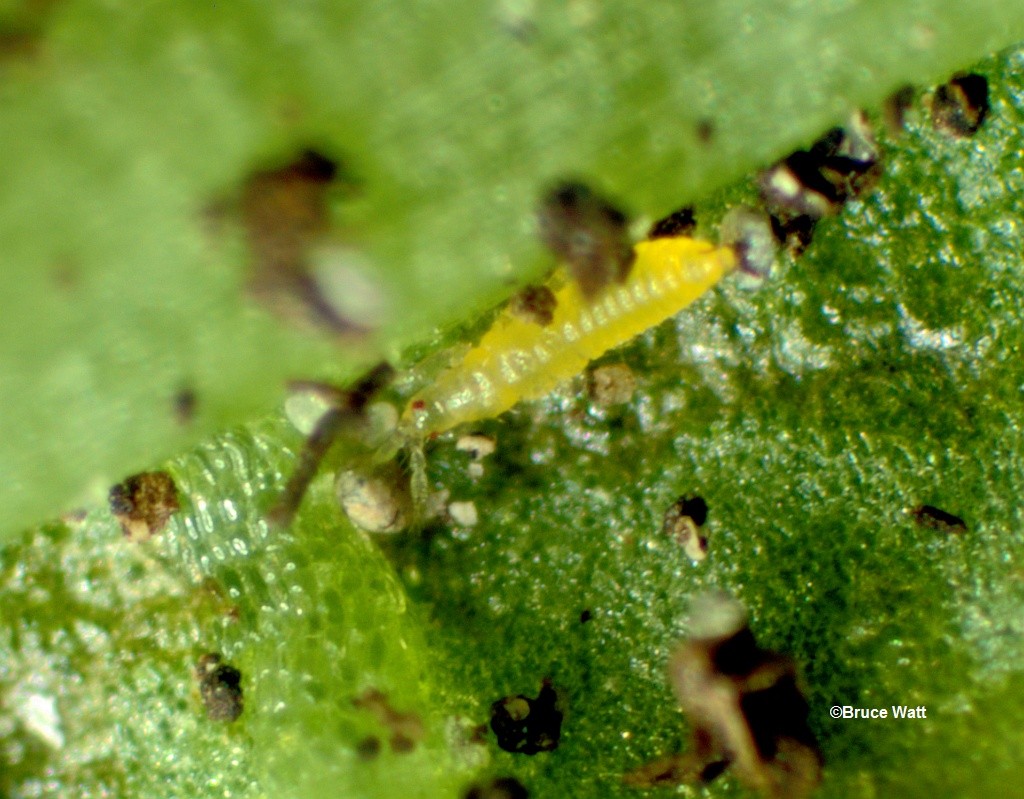
Thrips, like aphids and caterpillars also affect a variety of plants, particularly onion and pepper. As you can probably tell in this photo, taken with a hand lens, they are thin and oval-shaped. They suck plant juices, scrape fruits and spread viruses.
5. Leaf miners
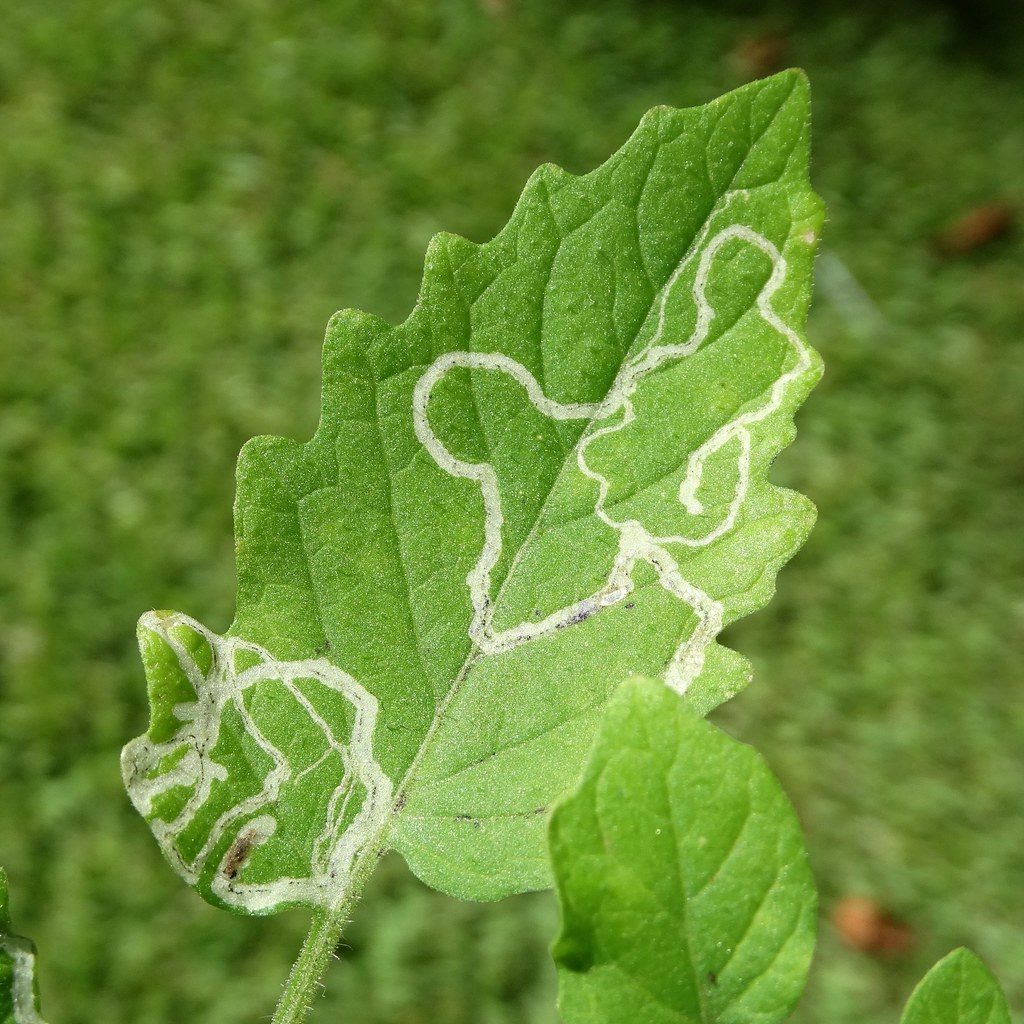
Leaf miners can be recognized by the tunnels their larvae dig within the leaf of the plant. They affect a wide variety of plants, and though they make leaves look unsightly and reduce yields, their damage is not severe.
6. Spider mites
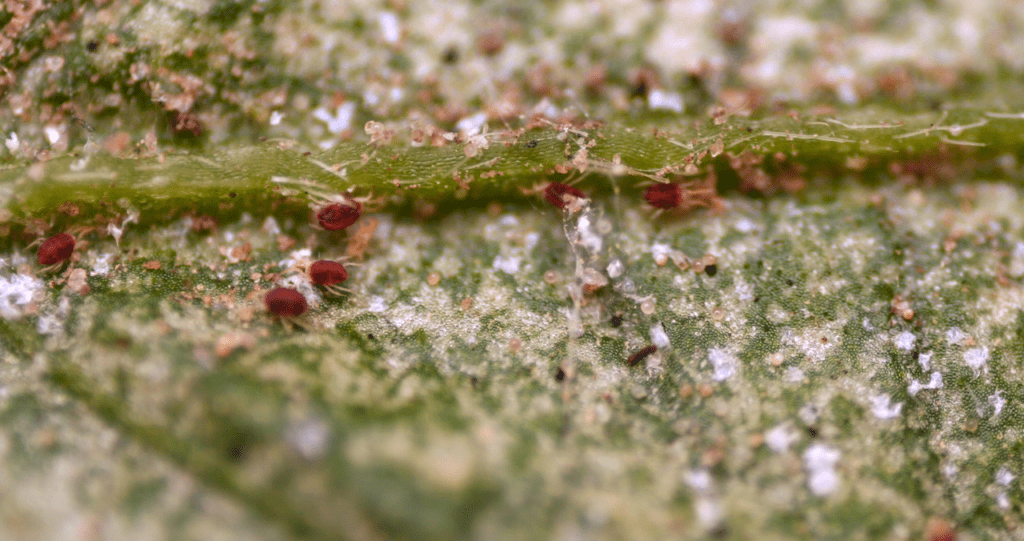
These tiny arachnids suck sap, and in groups, can be noticed by the webs they weave. Among the plants in your garden that they may affect are tomato, eggplant and beans.
7. Flea beetles
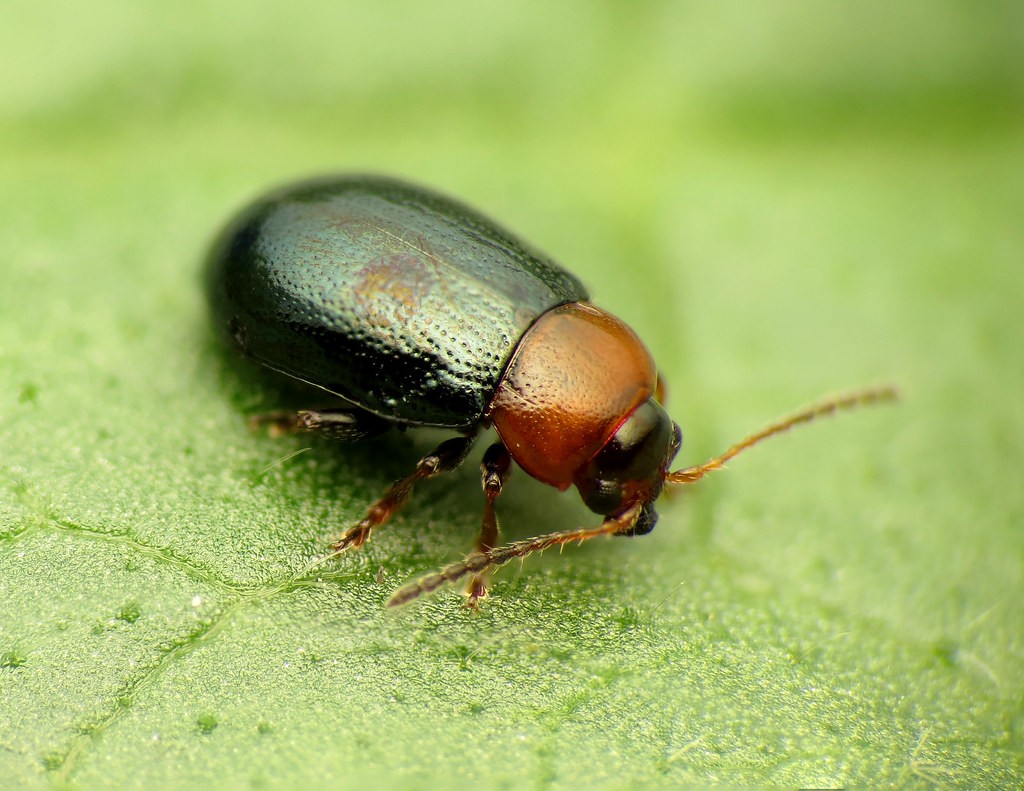
Flea beetles are small and dark and jump when disturbed. They are found on brassicas and many other vegetables. They create round holes in plants.
Now that you’ve familiarized yourself with these pesky garden neighbours, these are some sprays that can help drive them away!
List of organic pesticides
In organic farming, the best insecticides for your vegetable garden, and those that you ought to consider having ready on hand, are the following:
1. Neem oil
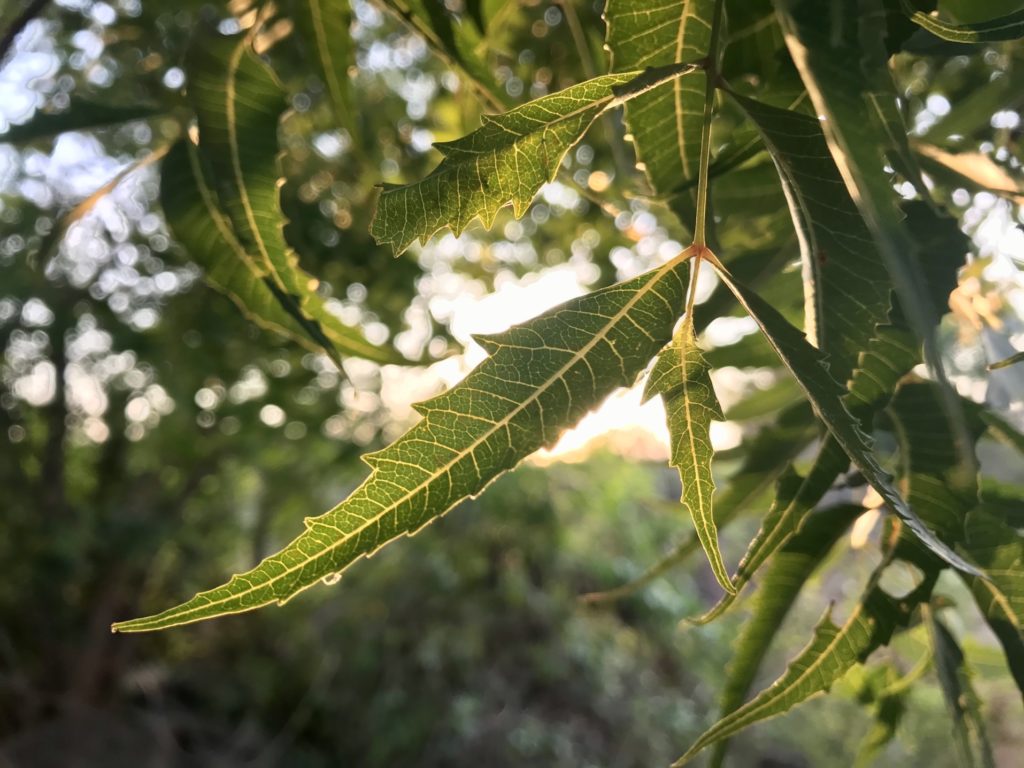
It contains the active ingredient azadirachtin which repels insects and inhibits their growth. Neem oil is good to use against aphids, leaf miners and whiteflies, and can also help with flea beetles.
2. Bacillus Thurengienses
Also known as Bt, this biological control agent made from bacteria, is very effective in controlling the caterpillars of moths and butterflies.
3. Spinosad
Like Bt, Spinosad is also a bio-control agent. It is effective against thrips, leaf-miners, spider mites and whiteflies. Spinosad can be toxic to bees up to three hours after spraying.
4. Diatomaceous Earth
DE is made from sedimentary rock and hurts insects crawling on or around your plants. It can be used for against ants, aphids and caterpillars.
5. Pyrethrin
Among the strongest of all organic-approved insecticides, and made from chrysanthemum flowers, it is a broad-spectrum insecticide, effective against all of the above-identified pests. However, they are toxic to bees as well, so use it sparingly.
Read the instructions on the back of each product to determine how often to spray, at what concentration to spray and when it is safe to harvest after spraying.
A number of these products can be bought from Shalimar in the UAE, plantnmore in Kuwait and if they ship to you, Amazon.
Effective Homemade Organic Pesticides
Here are 3 easy-to-prepare DIY insecticides for plants that you can make at home using everyday ingredients, from the knowledgeable folks at treehugger:
1. Soap Spray Insecticide
Effective for controlling aphids, whiteflies and other insects. Prepare it as follows:
2 cups rubbing alcohol, 5 cups water and 1 tablespoon liquid soap. This preparation also works without alcohol.
2. Neem oil insecticide
If you don’t want to buy a ready-made preparation, use concentrated neem oil to prepare the following homemade spray. The formula is:
2 teaspoons neem oil + 1 teaspoon of liquid soap + 1 liter of water (shaken thoroughly)
3. All-in-one insecticide

This is for when you have extra food lying around!
1 bulb of garlic + 1 small onion + 1 litre of water + 1 teaspoon of cayenne/hot pepper powder.
Puree the above. Steep for an hour. Strain the mixture.
Finally, mix in 1 tablespoon of liquid soap.
It stores in the fridge for a week.
Takeaways for organic pest management
Once you identify the insects affecting your garden vegetables, you can opt for the right spray – either homemade or commercial.
However, we stress that it is very important to work first on soil health (using good-quality compost, and rotating your crops – meaning not planting the same crop in the same place, etc.), and biodiversity (to have about 40 species of plants in your garden – including ornamentals). Biodiversity creates a healthy, balanced ecosystem that encourages predators to visit your farm, and give you a hand with pest control!
Good luck!
How to grow Mulukhiyah / Molokhia in your home garden - SoWeGrow
May 7, 2020[…] Mulukhiyah does not need much care. If affected by insects that create holes in the leaf, you can use neem oil or a stronger pyrethrin-based spray. […]
How to grow mint for free, forever! - SoWeGrow
May 19, 2020[…] aphids; so regularly monitor your plants. If your your mint is affected by aphids, you can make a simple soap-based insecticidal spray. An even more awesome hack is to use sticky […]
How to grow parsley in the heat of the summer - SoWeGrow
June 18, 2020[…] insecticidal soap and other homemade or commercial organic sprays if affected by whiteflies, aphids or […]
Gardening Resolutions: 7 No-Brainer Reasons to Grow a Garden in 2021 - SoWeGrow
April 8, 2021[…] gardeners – such as starting seeds indoors, ensuring a thriving garden in the summer heat, managing pests organically, and having a garden growing parsley, growing mint and having molokhia in the summer […]